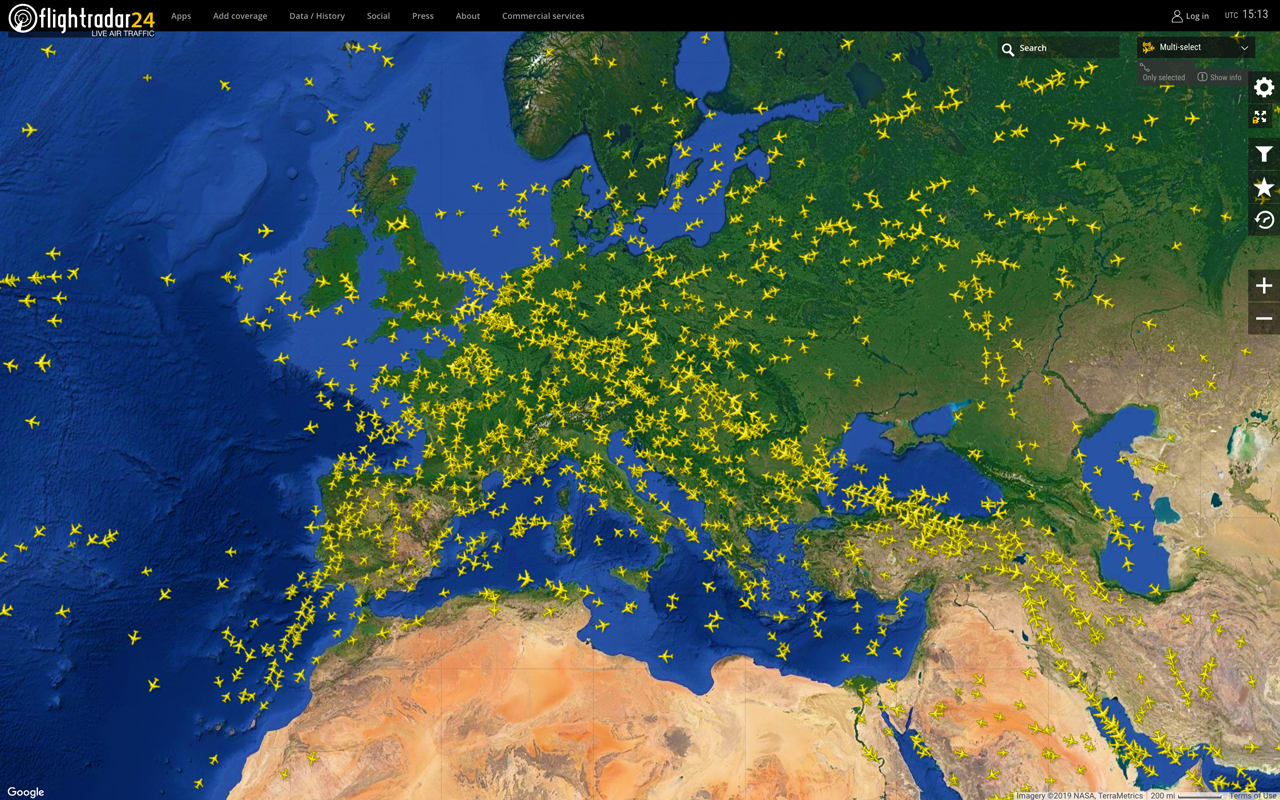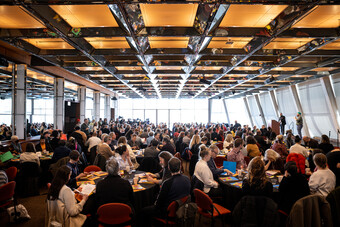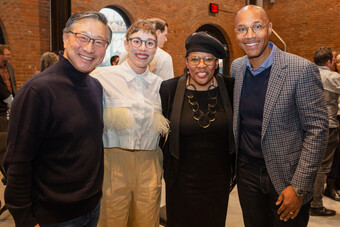The emergency deadline has been announced: 2030
Sounding an alarm in October 2018, the UN’s Intergovernmental Panel on Climate Change published a special report to warn the world about the impact of the smallest decimal point changes in global warming temperatures above pre-industrial levels. The report also stated that, in order to prevent even larger scale human suffering than we are currently on course to collide with, the world has to commit to drastically reducing global emissions starting now until 2030, or face a point of no return for humanity. This hard deadline implies not just a profound shift in our current lifestyles, but also the creation of entirely new systems and cultural values for how our civilization operates.
This pivotal moment in history begs the questions: How do we—the institutionally supported nonprofit arts sector, primarily in the wealthiest and most polluting countries—continue to justify our business-as-usual, fossil-fueled programming, which relies on one of the worst contributors to emissions, air travel? When we create long-term plans for our arts organizations, are our designs implicitly informed by our current fossil-fueled way of thinking? How can we revise our missions to address the existential emergency that human civilization finds itself in while not inadvertently propagating the crisis and our cognitive dissonance with our institutional travel practices? How do we reconceive of our art-making systems for a post-carbon world?
Air travel is a carbon bomb
Many nonprofit organizations that serve and support the artistic, educational, and cultural field in some way have come to depend on the commercial aviation industry to make their programming and fulfill their missions. We have decades of habitual practice of flying dozens—if not hundreds—of people all over our large continents for conferences and productions. For many of us, this is programmatic activity central to our organizations’ missions.
In terms of the types of fossil-fueled activity in the arts sector, air travel is the major area that we can collectively focus on in order to develop alternatives. The reason to focus on air travel specifically is that there is no near-term post-carbon technology for flying. Only slower land-based and water-based transportation systems have the eventual potential to be low-carbon or zero-carbon in the near term.










Comments
The article is just the start of the conversation—we want to know what you think about this subject, too! HowlRound is a space for knowledge-sharing, and we welcome spirited, thoughtful, and on-topic dialogue. Find our full comments policy here
When George Bartenieff and I attempted to interest the TCG community in Climate Change Plays, we took the train to the annual conference which was in Cleveland. I love train travel, but our trains obviously need enormous upgrades to make them energy efficient and faster. It took us 14 hours from NYC to Cleveland. I am sorry to say, that the regional theaters in this country are enormously uninterested in presenting work that is ecofeminist, or eco-anything. I have said this in the Guardian and elsewhere, the Boards of Directors of our major theater institutions are invested in fossil fuels, as are many of the foundations, like the Edgerton, Sloane, etc, that fund new work. Artists addressing the fossil fuel industry are not going to get produced. Re: plane travel, I think we can ask ourselves to limit our professional flights to one or two per year. I am trying to stick to even fewer.
Thank you, Karen, for your comment. I agree with everything you are saying. We shouldn't just lean on individual, freelance artists to change the theatre culture in the US given their dependence on institutional theatres and organizations for support and careers. I believe, however, that rapid change in our field's culture around this question can happen very soon — like this year. All it takes is just a few progressive charitable foundations and professional service organizations to decide to encourage new thought around travel and gatherings and how their grant and service programs can be redesigned. This kind of leadership from our supporting institutions has the power to change our field's consciousness really quickly.
As a heads up, there's a group of folks (myself included) who are coordinating a series of events related to climate justice at this year's TCG conference. One of the sessions will be a Lab (on Wednesday, June 5, 9am-12pm) called "Green New Theatre." We're hoping to do some collective visioning and movement building around how to transform systems, structures, and individual practice. If you're planning to be at the TCG conference, please join us. Also, Vijay -- we're looking into possibility of digital participation for people who won't be there in person (and to cut down on necessity of people flying to the conference) -- maybe this is something HowlRound can support?
All best, Annalisa
Thank you Annalisa for pointing this out! Yes, HowlRound is happy to be partnering again with the Theatre Communications Group National Conference to livestream many of their sessions from Miami in June. The full livestreaming schedule is in the works and we're aiming to publish it in a few weeks. The session you mention is definitely on our radar for livestreaming, and we can figure out ways to make it interactive with any participants who will be watching online.